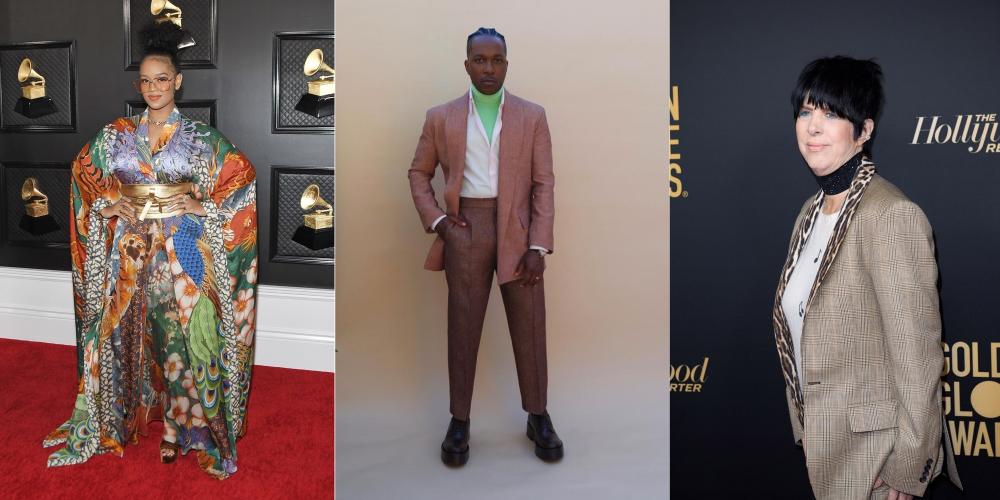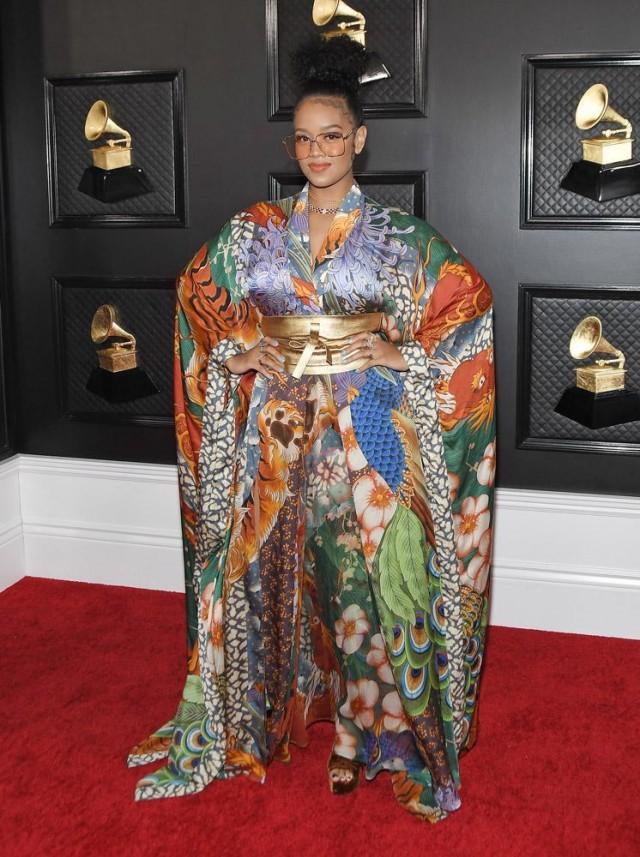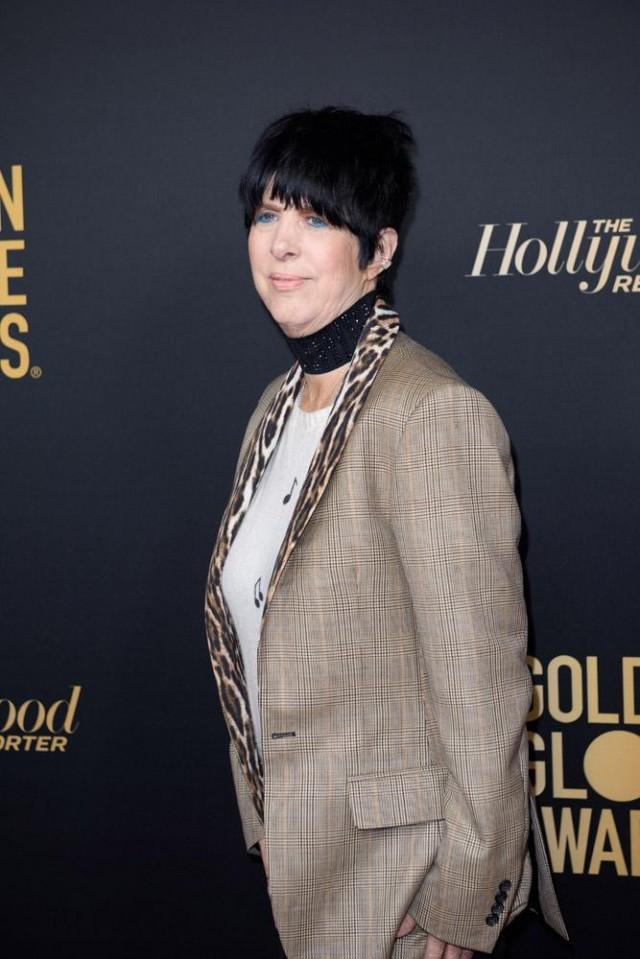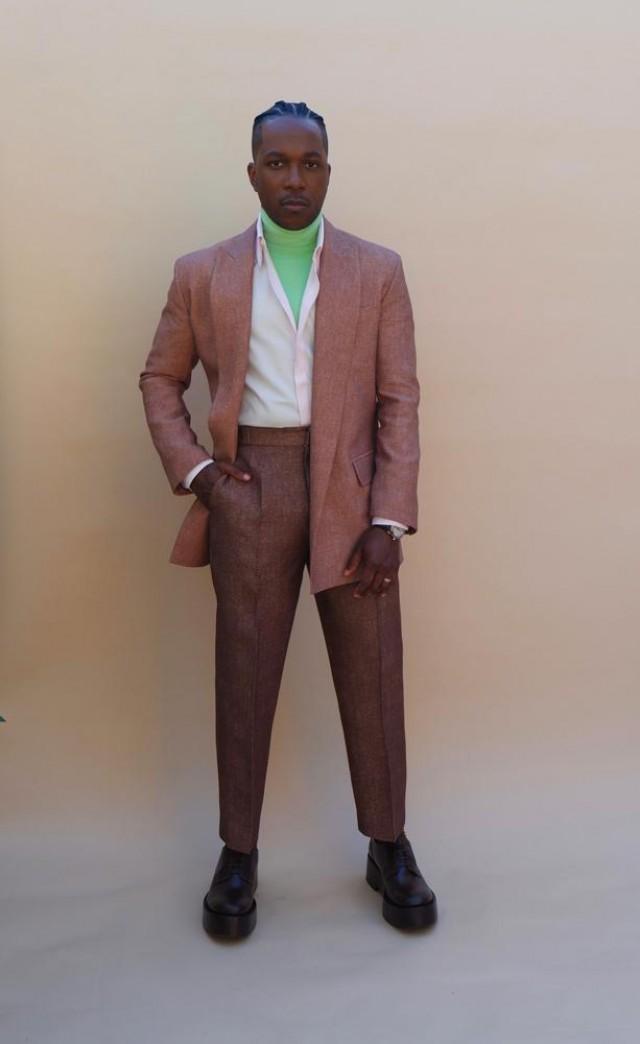At the 93rd Oscar Awards: H.E.R., Leslie Odom, Jr., Diane Warren and more to perform

Los Angeles — Filipina-American songwriter-singer H.E.R. will perform her Oscar-nominated composition “Fight For You” for the movie “Judas and the Black Messiah” at the “Oscars: Into the Spotlight” lead-in special to the 93rd Oscars on Sunday, April 25.
The 23-year-old from Vallejo, California, whose Filipina mom, Agnes, hails from Cabanatuan, Nueva Ecija and her musician dad, Kenny Wilson, is African American, revealed that along with co-songwriters D'Mile and Tiara Thomas, she wrote the song over FaceTime.
“I didn't imagine that my fear and that my pain would turn into impact, and it would possibly turn into change. And I think that's what this is about," H.E.R. said.
Born Gabriella Sarmiento Wilson, H.E.R. disclosed that she recorded this song herself “in my bedroom at my mom's house.” She added that her dad “was in tears when I wrote the song and I played it for him. He was the first person I played it for.”

Of the song’s message, she pointed out, “Fight for the message of my music and fight for what we all go through and what makes us kind of all the same in some of the things that we go through. Women of all ages relate to my music — middle school, high-school, women who’ve been married for 20, 30 years. Women who are 70, who take their daughters to my shows and listen to my music."
"I try to bring everybody together in a way and create a universal message so that anybody can relate to it. And everybody is fighting for something. And if you aren’t then what is the purpose? But I think the message is really to bring people together and find that relation.”
“Oscars: Into the Spotlight,” to be hosted by actors Ariana DeBose (“Hamilton”) and Lil Rel Howery (“Bad Trip”), will also highlight the performances of other Best Original Songs nominees.
Laura Pausini will perform “Io si (Seen)” from “The Life Ahead”, a song co-written with Diane Warren, who has been nominated 12 times already.
The Tony and Grammy-winning star of “Hamilton” Leslie Odom, Jr. will perform “Speak Now” from “One Night in Miami.” Nominated for Best Supporting Actor, Odom actually co-wrote the song with Sam Ashworth.
Soul singer Celeste will perform “Hear My Voice,” for “The Trial of the Chicago 7” which she co-wrote with Daniel Pemberton.
Molly Sanden will perform “Husavik” from the comedy “Eurovision Song Contest: The Story of Fire Saga” starring Will Ferrell and Rachel McAdams. The song was written by Rickard Goransson, Fat Max Gsus and Savan Kotecha. The performance was recorded in Husavik, Iceland. While the rest were performed at the Dolby Family Terrace of the Academy Museum of Motion Pictures in Los Angeles.
The 90-minute special will highlight the nominees’ journey to Hollywood’s biggest night, give fans around the world the ultimate insiders’ sneak peek into the party and for the first time bring Oscar music to the festivities. The show will also feature a special appearance by DJ Tara.
We interviewed Diane Warren and Leslie Odom, Jr. and below are excerpts of our conversations with them:
Diane Warren

Where are you calling us right now?
I’m in my studio in Hollywood, in my recording studio.
I hear you are going to release an album.
This one is not an album I sing on; it’s a features album. It’s what DJ’s do, what Mark Ronson, Calvin Harris or Khaled do, where it’s basically me curating my songs with various artists singing them. You’re lucky; you don’t have to hear me. (laughs)
Why did you take so long to release the album?
It’s funny, Mark Ronson said the same thing to me when I told him. And you know the reason — I’ll tell you how this whole thing started. Thank you John Legend, because there’s a song of mine that he did five or six years ago and it’s such a great song. And he kept saying he was going to use it and then he didn’t use it.
I gave it to another artist and then he goes, “no, I want it.” And I pulled it from that artist and then he didn’t use it, and it’s kind of funny. Finally I’m thinking, he’s not going to use this song. I’ve already taken it from these two artists. This is one of the best things I’ve ever done or heard.
I thought you know what, I’m going to put my own album together. I’m going to do what a DJ does, why can’t I do it? Songwriters don’t usually do that; it’s always DJs. But why can’t I curate an album of that song, other songs, and work with artists I want to work with, work with artists I’ve worked with like Celine (Dion) or work with new artists that I haven’t worked with like Laura Pausini, James Arthur or Darius Rucker, all these other people I’ve wanted to work with.
I know you wrote a song about the situation we are living in right now. How has this time been for you?
I’ve really used this year. One of the great things for me is that nobody’s in my office. I love that, because no one’s bothering me and no one is saying, “Diane you’ve got to do this, you got to do that.” So, I’ve been in my room, nothing’s changed for me because I’m a solitary person and I just sit in my room basically doing the same thing I always do.
But I’ve been super focused, I’m always very focused but this year I’ve really written some of my best songs I’ve ever written in my life. So, I can say that and that’s really the silver lining.
When you write, are you thinking about the feelings of other people or just what affects you?
I don’t really think when I’m writing. I get inspired and I go with it. I think more when I’m writing lyrics to make everything — there’s a combination of thinking and not thinking, if that makes sense.
I’m not thinking consciously, 'I have to do this or this or this.' I go with whatever inspires me. On my record, there’s a song called “Times Like This” which is my first single that Darius Rucker sings. I wrote that maybe the first month into the pandemic. “In times like this we could all use an angel.” I started writing it, I’m like, I’m definitely inspired by what was going on and I wanted it to be a song of hope. And I thought, this really feels like it captures what’s going on but yet it’s not depressing. I always want my songs to give hope, to be honest and that’s one example.
Do you have any singers now who are going to do these songs that are inspired by the pandemic?
Well I did a song for JoJo called “The Change,” which the Biden/Harris campaign used as their theme. That’s not on my album, that’s on her album. But that’s not necessarily about the pandemic. I think there’s something coming into the songs I’m writing, there’s something deeper I feel this year. I’m still writing some fun pop songs too, I always like doing that, but there’s some depth. Like a couple of weeks ago, I wrote the best song I’ve ever written to date and that was during this time; so there’s always a silver lining.
You have really broken so many barriers for women in music. You were first in so many instances. What was the biggest obstacles when you first started?
I never looked at it like being a woman in the music business, I always looked at it as I am a songwriter, right? I don’t think being a woman has held me back in all honesty because of what I do, either someone wants the song or they don’ t want the song.
It’s not like where it’s corporate or I am a recording artist dealing with all kinds of sexual stuff you have to deal with and all that. I didn’t have a lot of that to be honest. But I know a lot of people do in every other field.
Personally, it never hindered me, the fact that I am a woman. And it drives me nuts because like female songwriter or female journalist or female director, it drives me nuts because they don’t do that to males, male songwriters, male journalists, male director, male doctor, ugh. (laughs)
Did you ever think that you wanted to be front and center and you wanted to stand in front of a microphone?
No, never, that is the farthest from what I really want. Like I have the best gig in the world. I love not being known. I mean people know my name, which is cool. It’s a great gig because people know my name but they don’t necessarily know what I look like and they don’t bother me.
But I always feel I am like on the sidecar of fame, because I work with these big artists and stuff and I see what they go through and go, 'oh God, I don’t want to deal with what that guy,' where they literally can’t go anywhere or share. These people, they are larger than life. They can’t even go to the store. They are in a fishbowl.
I just love what I do. (laughs) And the reason my name is on my album is because I am curating my songs; it’s all in the service of the songs.
Who helped formulate your musical taste?
I grew up in Los Angeles, my whole life I lived here. We had KHJ, KRLA, KFWB, those were our Top 40 stations, and at the time where I grew up, and everything, I remember seeing The Beatles on Ed Sullivan, like everybody else that’s old. (laughs) And then it cut into me like it was electrifying.
I got to hear everything. My mom and dad had “Man of La Mancha” and “My Fair Lady” and all of that kind of stuff, and then I had older sisters. One of my sisters is 11 years older and one is 14 years older, so I remember being born and hearing Buddy Holly, that’s how old I am. And literally, I was born in 1956, and that is when that song was from. So I remember that song; that’s probably the first song I remember hearing.
But I was lucky enough to be influenced by the golden age of songwriting, the '60s, because you had Motown, you had The Beatles, you had Sinatra and then ‘70s soul music, and there was so much great music. And yeah, I got to hear it all. So I think by osmosis I took it all in.
Leslie Odom, Jr.

I love all the songs Sam Cooke sang. Portraying this role, how did you find and fight those demons and phantoms that probably are not in your generation anymore?
Oh, I don't fight it. I don't fight those demons. You make room for them, and you let them in. And it's the other side of the coin.
This profession is so wonderful and it's so much fun, and it's a wonderful business. But there's another side of it. You and I both know not everybody makes it out of this business, unscathed. Those hotel rooms at night can be very lonely after a day of shooting, after you invite those demons in. Sam wrestled with them.
All four of us, we owed it to these gentlemen to wrestle as much as we could, metaphorically to wrestle with those same demons. And so Kingsley (Ben-Adir) and I had a lot of late night sessions where we would debrief, we'd have wine and just hang outside the hotel room and just bounce things off of one another to let it go, to release some of that pressure. But I didn't fight him.
Can you tell us how you wrote the song for this movie?
We (Sam Ashworth and him) wrote it especially for the movie. We actually wrote four songs for them to choose from. I'd never had a writing task before. No one's ever hired me to write something.
I've written on my own but we very much wanted Regina (King) to be happy with it and for the producers to be happy. So I wrote four different songs with four different teams. Sam Ashworth is a friend of mine who I've written with before, and this was the song that they chose.
And so after Regina heard the demo and she chose this, we went back in and made it even better. It was a big task because I knew that it would come after a change is going to come, which is really Sam's life's work. So we decided not to... We thought it would be best to really focus, instead of focusing on Sam for that original sentiment, to write something that came from me because I will never be Sam Cooke, but I can be the best version of myself that I can be.
How was having Regina King as a director?
She created a safe and welcoming space, for the most truthful work, the most daring work possible. And when she did have a note or a thought for me as an actor, as a performer, she only made me better. She only gave me a push in a direction that didn't occur to me, and it always made the scene funnier, more honest, more dramatic. She was an exceptional director.
Being artists and having a calling, talk about your inner drive, your inner compass.
In my 20s, it was about making peace with the part that I can't control. That's been the biggest part of my spiritual work, because there comes a point, look at us this year, you push as hard as you push, you work as hard, you're in the gym, you're meeting all the right people. And then there's something that happens that you can't control.
And so making peace with that part, with the space between your effort and your ambition and the way the world is going to respond to you. Because even with this, this found its way to me.
I didn't seek this out the way I've sought out some other opportunities that I thought, that's going to make me where I want to go. This came to me. And then the fact that this year has opened up people's hearts and made people tender in a way that they can receive a small movie in this way. The gratitude is baked into that because I didn't have anything to do with that part. — LA, GMA News



